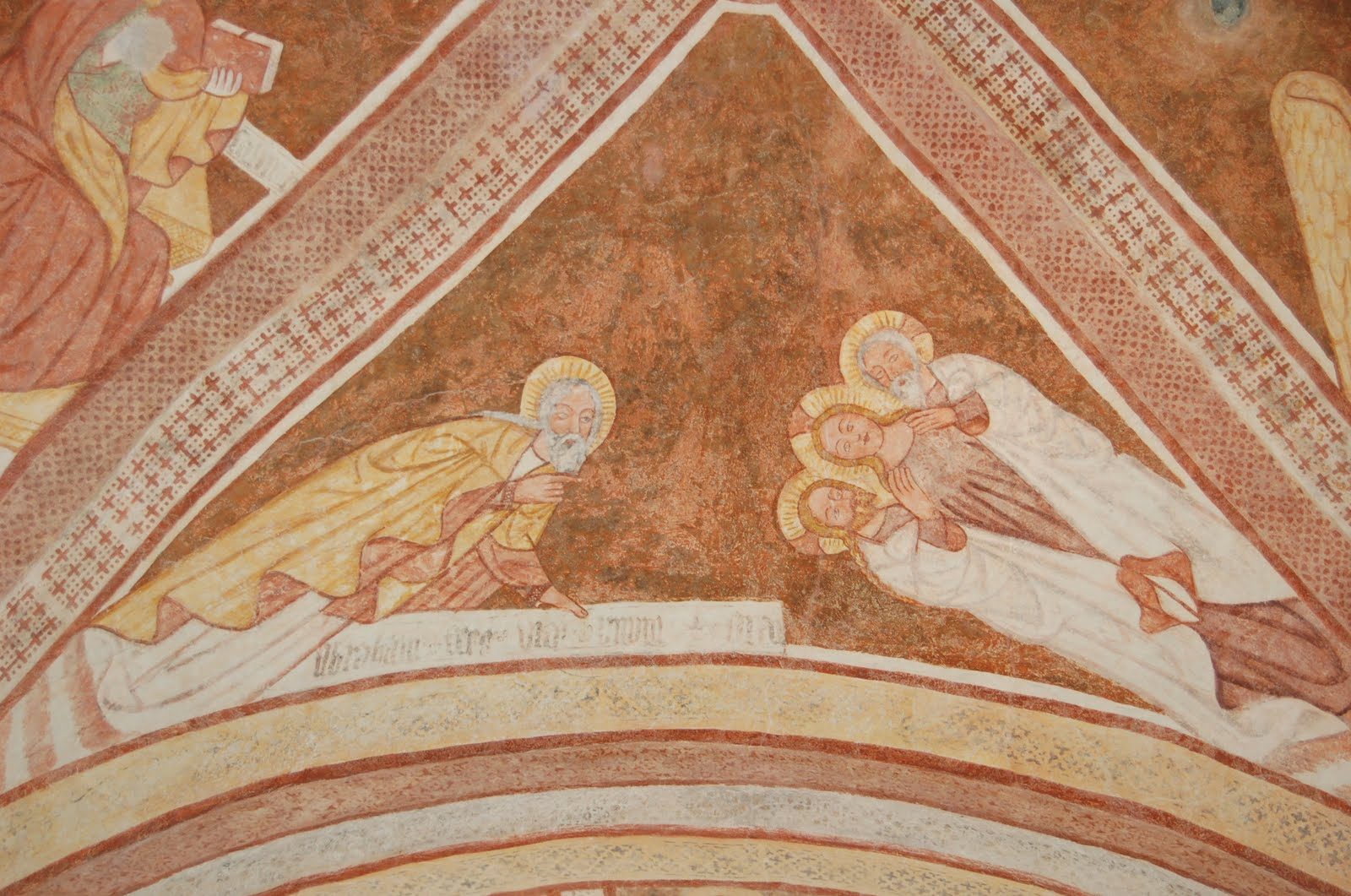Meeting Naomi for the First Time
I opened the Old Testament the other day and found myself on the first page of the book of Ruth. As I read, I saw for the first time that the story is at least as much about Naomi as Ruth, and that Naomi’s story is similar to Job’s. I think this is the Mother God Experiment doing its work, enabling me to see the invisible women of the Bible with new eyes.
And I identified with Naomi for the first time, as well. I’ve always seen her as kind of ancient and sad, though loveable. But now she is my peer: a middle-aged woman, married with two sons, just like me.
Seeing Naomi Mirror Job
But Naomi’s husband and two sons died, and I have mine. She lost everything, just like Job did. From her perspective, “it is more bitter for me than for you [her daughters-in-law], because the Lord’s hand has turned against me!” She sees herself like Job saw himself when his children died and he lost his health. He said, “The arrows of the Almighty are in me, my spirit drinks in their poison” (Job 6:4a). Interestingly, both Ruth and Job refer to God as Shaddai, Breasted One, the God of fruitfulness introduced in Genesis.
When Naomi gets to her home town, the people can barely recognize her, perhaps due to the aging effects of grief (Ruth 1:19), just as Job’s body has changed due to sores (Job 2:8). She tells them she feels “empty,” compared to when she left Bethlehem: no husband, no sons, no grandchildren. She feels “afflicted” by “misfortune” that the Lord has “brought upon her” (Ruth 1:21). In like manner, Job says, “What I feared has come upon me….” (Job 3:25).
Naomi May Be Stronger than Job
Yet Naomi is a strong woman, willing to face the most lonely situation of her life with a generous spirit. Though she would be on the bottom of the social rung as a poor widow, she urges her daughters-in-law to go back to their family homes in Moab. They have come part way with her to Bethlehem and are both crying at the thought of leaving her (1:9). Naomi knows that the young women would be strangers in Judea, and she foresees how difficult it would be for them. She herself lived as a foreigner in Moab a very long time.
Job’s lengthy complaints to his friends do not exactly mirror Naomi’s own quiet generosity of spirit. (It could be argued, though, that Job has lost more because he loses his health entirely, as well as the wealth and reputation he started with). Job’s theme is his own innocense, and God’s inexplicable acts against him, so that Job “despises his own life” (9:21).
.
Like Job, Naomi is likely feeling vulnerable, and rejected by God, but unlike Job, she does not lose her voice of strength in the book of Ruth. Her power is in her relationships, not her arguments. She accepts help from Ruth, and acts to help her in return. Naomi cares for Ruth as a mother would, calling her “daughter” starting in chapter 2.
Naomi Acts Like Mother God
Virginia Ramey Mollenkott says that in fact Naomi acts as Mother God would. She writes, “It is important to notice that when Naomi refers to God in 1:20-21, she names God with the Hebrew name Shaddai, a name which can be understood as ‘the God with Breasts,’ although it is usually translated ‘the Almighty’ or ‘the LORD.’ This reference underscores my assumption that for Ruth, Naomi had been an embodiment or incarnation of the One God as the God with Breasts.”
Ruth’s role is child-like devotion and submission, qualities revered in Hebrew women, but Naomi is the image of Mother God for Ruth. Naomi is the nurturing savior-leader-provider and problem-solver of the two. She is the figure of the mother bird that Boaz tells Ruth she has been protected by: “May you be richly rewarded by the Lord, the God of Israel, under whose wings you have come to take refuge” (2:12).
Naomi tells Ruth: “My daughter, I must find a home for you, where you will be well provided for” (3:1) And she gives Ruth instructions on winning her relative Boaz as a husband. (Boaz is also acting as Mother God’s protective covering, symbolized by Boaz’ garment thrown over Ruth [3:9]). Ruth fruitfully follows Naomi’s directions.
In contrast, Job’s one familial relationship is on the fritz, with his wife telling him to “curse God and die” (2:9) instead of remaining faithful to God and Job’s well-being. Perhaps Job wasn’t a great husband to begin with; we are not told that much. (I have always thought Job’s wife was failing him, but who knows the back story?).
Naomi’s strong relationships with her daughters-in-law clearly show her likeness to Mother God.
God Restores Naomi and Job
Like Job, Naomi finds restoration and fulfillment in the last half of her life. She receives a grandson from Ruth. The women of Bethlehem exclaim over Naomi’s blessing, not Ruth’s: “Praise be to the Lord who this day has not left you without a family guardian. May he become famous throughout Israel! He will renew your life and sustain you in your old age” (4:14). The women proclaim, “Naomi has a son!” (4:16), as though Naomi is starting all over again as a mother. It turns out, he is a special son, as the women prayed. He is Obed, King David’s eventual grandfather, and an ancestor of Jesus Christ.
.
Naomi is no longer empty. Naomi is blessed, like Job, because of the strength of her love and wisdom, as well as Ruth’s devotion. Though we can’t rename the book of Ruth, we can turn to it with different eyes, able to now see a feminist foremother and the image of Mother God in Naomi.

